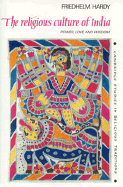Book contents
- Frontmatter
- Contents
- Illustrations
- Preface
- Power: the challenges of the external world
- 1 Consulting the oracle once again
- 2 Oceans of milk and treacle
- 3 Navigating the sea of earthly existence
- 4 Safe havens
- 5 Violence, aggression and heroism
- 6 Manipulating space, time and matter
- 7 Entering forbidden realms
- 8 Unleashing the powers of the self
- Love: the rhythms of the interior world
- Wisdom: commuting within one world
- Notes
- Index
7 - Entering forbidden realms
from Power: the challenges of the external world
Published online by Cambridge University Press: 09 February 2010
- Frontmatter
- Contents
- Illustrations
- Preface
- Power: the challenges of the external world
- 1 Consulting the oracle once again
- 2 Oceans of milk and treacle
- 3 Navigating the sea of earthly existence
- 4 Safe havens
- 5 Violence, aggression and heroism
- 6 Manipulating space, time and matter
- 7 Entering forbidden realms
- 8 Unleashing the powers of the self
- Love: the rhythms of the interior world
- Wisdom: commuting within one world
- Notes
- Index
Summary
Although the last chapter dealt with deadly duels, bloodthirsty ogres and horrific sorcerers' battles, there cannot be any doubt that a romanticizing tendency was at work there. Our vidyādharas, nāgas, etc. are made to appear quite amiable on the whole. The odd man-eating yaksa or demon may crop up, but there is always the chance of pacifying the creature and obtaining a vidyā from him, or of winning the love of a girl through him. As far as the vidyās are concerned, they are treated as related more to the ‘battle’ between the sexes than to anything really dangerous, such as the making of things by interfering in nature, breaking nature up and reconstituting it at will, or annihilating it altogether. This in turn means that, as far as the material discussed so far is concerned, the nightmarish fears which we find in our own imaginative projection of what our vidyās can do are not expressed. I am thinking here of all-pervasive themes like the mad German scientist or the ‘Dr No's of our popular films and novels; of alien empires that must be destroyed through our futuristic weapon technology. Our Indian stories read much more like the exploits of modern heroes such as 007, although even here an unease about the role of science in the wrong hands does express itself.
Thus, to suggest against the background of Western fears and doubts a correlation of the Grand Story and its related material with Western science may not appear obvious.
- Type
- Chapter
- Information
- The Religious Culture of IndiaPower, Love and Wisdom, pp. 144 - 167Publisher: Cambridge University PressPrint publication year: 1994



